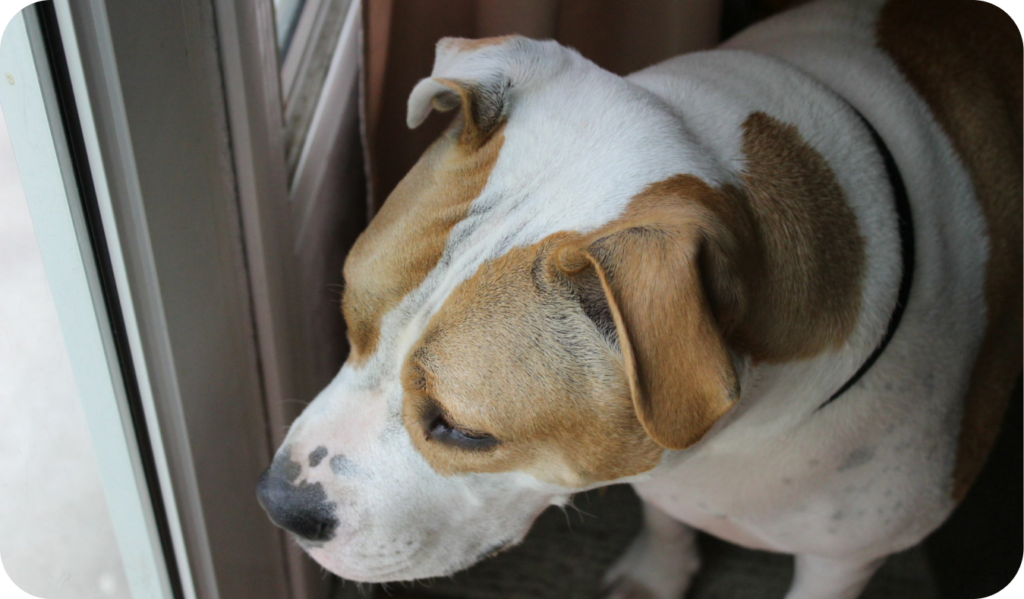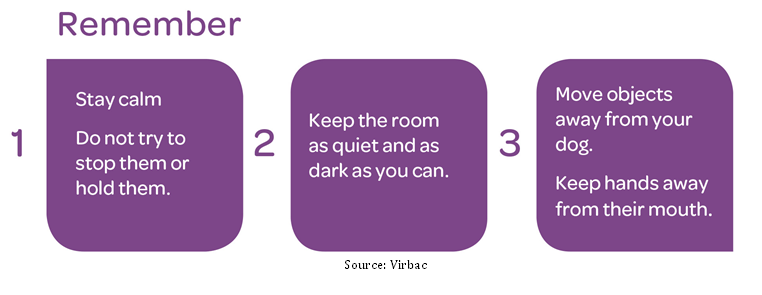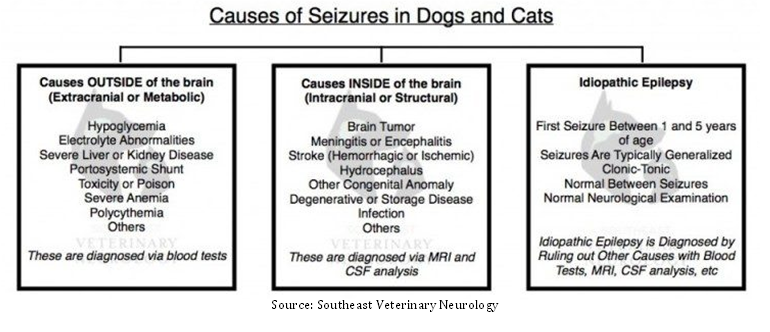Client Resources
Seizures

A seizure is when electrical activity in the brain becomes uncontrolled, leading to signs such as (but not limited to) collapse, muscle spasms, vocalisation, involuntary urination and loss of consciousness. Seizures may also be known as “fits” or “convulsions”.
There are several types of seizures, and each type can look different.
- Your animal may still be conscious and behave normally, but part of their body is not functioning normally. (Simple partial seizure)
- Your animal may have a change in consciousness or behaviour, but only part of their body is not functioning normally. (Complex partial seizure)
- Your animal may collapse with muscle spasms over their whole body and fall unconscious or be non-responsive. (Gran Mal seizure)
You may see changes in behaviour in the time prior to a seizure, such as agitation, restlessness, seeking the owner, etc. This is called the “Pre-ictal” period and can be seconds to minutes prior to the seizure. The period when the animal is actively fitting is called the “Ictal” period. Most seizures last less than 2 minutes. You may see changes in behaviour in the time after the seizure, such as blindness, ravenous appetite, pacing, circling, pressing head on objects/walls, etc. This is called the “Post-ictal” period and can last from minutes to hours to days.
Depending of the cause and type of seizure, you may see some or all of these signs.
Epilepsy is the most common cause of seizures in dogs and is defined as “unprovoked” electrical disturbances in the brain. Epileptic seizures usually begin at 1-5 years of age and are considered an inherited disorder. Epilepsy can only be diagnosed by ruling-out all other possible causes.
Diagnostic tests are used to try to determine which of the three categories are likely to be the cause of the seizures. Diagnosis of the cause of seizures may involve a series of tests that can include blood tests, urine assessment, cerebrospinal fluid (CSF) assessment, CT scan and MRI scan. Initial blood tests and urine assessment can be done with us here at North Maclean Family Vet, and can assess for diseases outside the brain and skull. If the results indicate that further testing is needed, you can be referred to a specialist veterinarian who can perform CSF assessment, CT and MRI scans to assess for diseases within the brain and skull.
The treatment needed is heavily dependent on the cause of the seizures. Each case requires an individual approach that is planned out by your vet. Treatment plans may include (but are not restricted to) antibiotics, anti-inflammatories, heart medications, dietary changes and anti-seizure medications.
- The first thing to remember if you think your pet is having a seizure is to REMAIN CALM.
- Ensure your pet is away from anything that can hurt it such as furniture. Do not place your hands near the mouth as the muscle contractions can cause them to inadvertently bite or clamp their jaw shut.
- Gently place your hands on the side of their neck or ear and apply gentle pressure to prevent them from lifting their head and then hitting the ground again.
- Take a note of the time and record how long the seizure lasts, and what kind of behaviours you observe during the seizure and in the post-ictal phase. Most seizures only last a minute or two.
- Contact your vet for further advice and bring your pet in for a health check. If the seizure lasts more than 5 mins or multiple seizures occur (more than 5 times within an hour), this is considered an emergency and you must seek veterinary care immediately.



